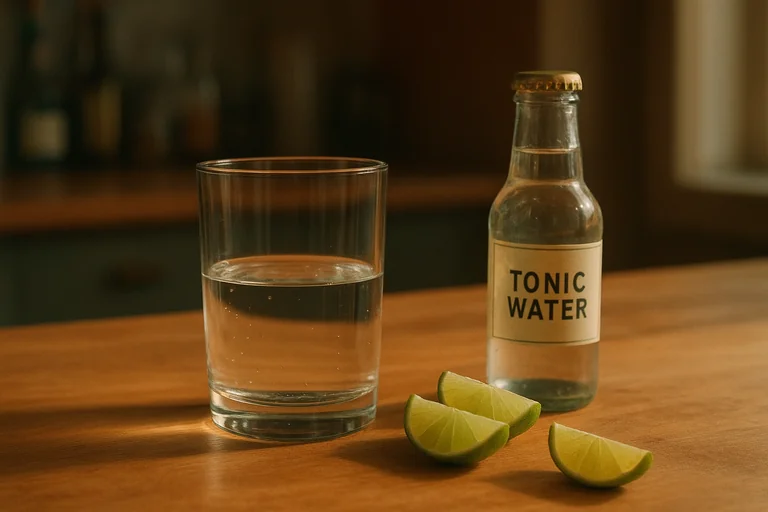A 2 minute assessment to get a personalized mental health or alcohol recovery plan.
Alcohol is a diuretic that disrupts your body's fluid balance - understanding this relationship is key to preventing dehydration and hangovers.
What You'll Discover:
- How alcohol acts as a diuretic and causes dehydration.
- The role of vasopressin in your body's water balance.
- Signs and symptoms of alcohol-induced dehydration.
- Practical hydration strategies before, during, and after drinking.
- Long-term health implications of chronic dehydration.
- How dehydration affects mood and cognitive function.
Ever woken up after a night of drinking with a pounding headache, dry mouth, and unquenchable thirst? This is the all-too-familiar calling card of alcohol-induced dehydration. While many of us associate a fun night out with the risk of a hangover, we often overlook the root cause: the significant impact alcohol has on our body's hydration levels.
Understanding this relationship is not just about preventing the dreaded morning-after misery - it's about protecting your overall health and well-being.
How Alcohol Causes Dehydration
To understand why alcohol leaves you feeling so parched, we need to look at its effect on the body's water management system. Alcohol is a diuretic, a substance that promotes urine production, leading to a net loss of fluid from the body. This process is primarily driven by alcohol's interference with a crucial hormone called vasopressin.
The Role of Vasopressin (Antidiuretic Hormone)
Under normal circumstances, your brain produces vasopressin, also known as antidiuretic hormone (ADH), to regulate your body's water balance. This hormone signals your kidneys to reabsorb water back into the body, preventing excessive fluid loss. However, when you consume alcohol, it suppresses the release of vasopressin from the pituitary gland. As a scientific review in Psychopharmacology explains, this disruption is a key factor in alcohol's diuretic effect.
With less vasopressin in circulation, your kidneys don't get the signal to hold on to water. Instead, they send water directly to your bladder, causing you to urinate more frequently. For every 200 milliliters of beer you drink (about 7 ounces), you can expect to excrete about 320 milliliters of urine (about 11 ounces). This net fluid loss is the primary driver of alcohol-induced dehydration.
The Dehydration Cascade: Beyond Frequent Urination
The dehydrating effects of alcohol are not limited to its impact on vasopressin. Several other factors contribute to fluid loss:
Drinking on an Empty Stomach - When you drink on an empty stomach, alcohol is absorbed into your bloodstream much more quickly. This rapid absorption intensifies the diuretic effect, leading to faster dehydration.
Appetite Suppression - In larger quantities, alcohol can suppress your appetite. This means you're less likely to consume food, which is a natural source of fluids and electrolytes.
Electrolyte Imbalance - As you lose fluids through increased urination, you also lose vital electrolytes like sodium, potassium, and magnesium. These electrolytes are essential for proper nerve and muscle function, and their depletion can contribute to symptoms like fatigue, dizziness, and muscle cramps.
Recognizing the Signs of Dehydration
It's easy to mistake the early signs of dehydration for the general effects of alcohol. However, being able to identify these symptoms is crucial for preventing more severe dehydration.
Mild to Moderate Dehydration Symptoms:
- Thirst and Dry Mouth - Your body's most direct way of telling you it needs more water
- Headache - Dehydration can cause the brain to temporarily shrink from fluid loss
- Fatigue and Dizziness - A lack of fluids can lead to a drop in blood pressure
- Dark-Colored Urine - Concentrated, dark yellow urine indicates your body is conserving water
- Reduced Urination - While alcohol initially increases urination, prolonged dehydration will eventually lead to decreased urine output
Severe Dehydration Symptoms:
Seek medical attention if you experience:
- Extreme thirst
- Rapid heartbeat and breathing
- Sunken eyes
- Confusion and irritability
- Fainting
While severe dehydration from a single night of drinking is uncommon for healthy individuals, it's a risk, especially in hot weather or when combined with physical activity.
Your Hydration Game Plan
The key to preventing dehydration is to be proactive and strategic. With a little planning, you can significantly reduce the dehydrating effects of alcohol. Here are expert-backed tips, including advice from the Mayo Clinic.
Before You Drink: The Pre-Hydration Phase
Your hydration strategy should start long before your first drink.
Hydrate Throughout the Day - Don't wait until the evening to start drinking water. Sip on water consistently throughout the day to ensure your body is well-hydrated before you start drinking alcohol.
Eat a Balanced Meal - Never drink on an empty stomach. A meal that includes carbohydrates, protein, and healthy fats will slow the absorption of alcohol into your bloodstream.
Consider an Electrolyte Boost - Drinking an electrolyte-enhanced beverage before you go out can help fortify your body's reserves of essential minerals.
While You Drink: The Pacing and Alternating Method
This is where your mindful drinking skills come into play. Pacing yourself is crucial for preventing both intoxication and dehydration.
The One-for-One Rule - This is the golden rule of hydrated drinking. For every alcoholic beverage you have, drink a full glass of water. This simple habit can make a world of difference.
Choose Your Drinks Wisely - Some drinks are more dehydrating than others. Sugary cocktails and high-alcohol-content drinks will dehydrate you faster. Opt for drinks with lower alcohol content, like light beer or a wine spritzer.
Avoid Salty Snacks - Salty snacks like pretzels and peanuts will only make you thirstier and can contribute to dehydration. Opt for more hydrating snacks like fruits and vegetables.
After You Drink: The Rehydration and Recovery Phase
What you do after your last drink is just as important as what you do before and during.
The Final Glass of Water - Before you go to bed, drink a large glass of water to help rehydrate your body while you sleep.
Replenish Your Electrolytes - A sports drink or a glass of coconut water can help replenish the electrolytes you've lost.
Have a Healthy Breakfast - The next morning, focus on rehydrating and nourishing your body with a healthy breakfast that includes plenty of fluids and nutrients.
By following these strategies, you can enjoy a night out without sacrificing your health and well-being. This is where the practice of mindful drinking can be a powerful tool for change.
Long-Term Health Implications of Chronic Dehydration
While the immediate effects of alcohol-induced dehydration are unpleasant, the long-term consequences of chronic dehydration can be far more serious. If you are a regular heavy drinker, you're putting your body at risk for a number of health problems.
Kidney Damage - Your kidneys have to work overtime to filter the blood when you're dehydrated. Over time, this can lead to kidney damage and an increased risk of kidney disease. For more information, read our article on alcohol and kidney health.
Cardiovascular Problems - Chronic dehydration can lead to a decrease in blood volume, which can cause your heart to work harder to pump blood throughout your body. This can increase your risk of high blood pressure, heart palpitations, and other cardiovascular problems.
Cognitive Decline - Your brain is about 75% water, so chronic dehydration can have a significant impact on your cognitive function. It can lead to problems with memory, concentration, and decision-making.
Skin Problems - Dehydration can leave your skin looking dry, dull, and wrinkled. Over time, it can also contribute to premature aging.
These long-term risks underscore the importance of making hydration a priority, not just on the nights you drink, but every day.
How Dehydration Affects Your Mood and Cognition
While the physical symptoms of dehydration are often the most noticeable, the impact on your mental state can be just as significant. Your brain is incredibly sensitive to your hydration status, and even mild dehydration can affect your mood, cognitive function, and overall sense of well-being.
The Dehydrated Brain
Your brain is approximately 75% water and relies on a steady supply of fluids to function optimally. When you're dehydrated, the volume of your brain can temporarily shrink, which can lead to cognitive impairments:
- Brain Fog - Mental cloudiness, confusion, and lack of focus
- Impaired Memory - Difficulty remembering new information or recalling recent events
- Reduced Concentration - Difficulty focusing on tasks, easily distracted
- Irritability and Mood Swings - Dehydration can disrupt the balance of neurotransmitters in your brain, affecting mood and emotional regulation
The Link Between Dehydration and Anxiety
There is growing evidence suggesting a strong link between dehydration and anxiety. When you're dehydrated, your body produces higher levels of the stress hormone cortisol, which can trigger feelings of anxiety. Dehydration can also cause physical symptoms similar to those of anxiety, such as rapid heartbeat, dizziness, and shortness of breath.
By staying hydrated, you can help keep your cortisol levels in check and reduce your risk of experiencing anxiety.
A Healthier Relationship with Alcohol Starts with Hydration
Hydration is not just about preventing a hangover - it's about respecting your body and making choices that support your long-term health and well-being. By understanding the science behind how alcohol affects your hydration levels and implementing a few simple strategies, you can enjoy a healthier and more balanced relationship with alcohol.
Remember, it's not about perfection; it's about progress. Every time you choose to have a glass of water between drinks, you're making a positive choice for your health.
If you're concerned about your drinking habits and their impact on your health, know that you're not alone. Ready to take the next step? Take the Alcohol Use Assessment to explore your options.
References
[1] Medical News Today. "Does alcohol dehydrate you?" https://www.medicalnewstoday.com/articles/does-alcohol-dehydrate-you
[2] PMC. "Vasopressin and alcohol: A multifaceted relationship" https://pmc.ncbi.nlm.nih.gov/articles/PMC6286152/
[3] Healthline. "Does Alcohol Dehydrate You? Facts, Research, and Tips" https://www.healthline.com/health/does-alcohol-dehydrate-you
[4] WebMD. "Mixed Drink Tips, Pacing With Water, and More" https://www.webmd.com/balance/features/how-to-hold-your-liquor




